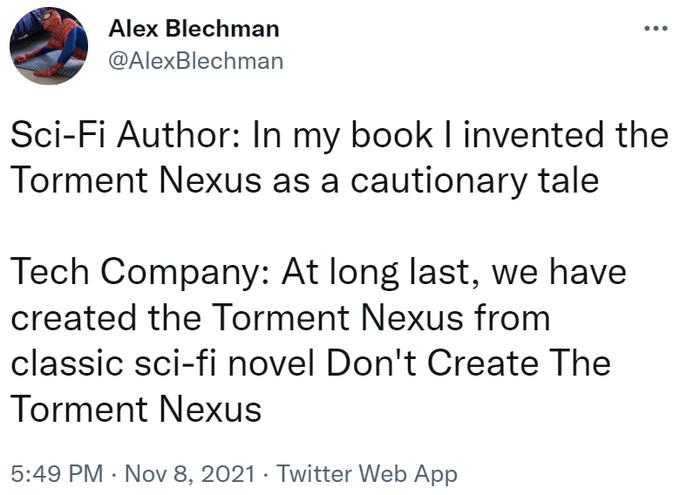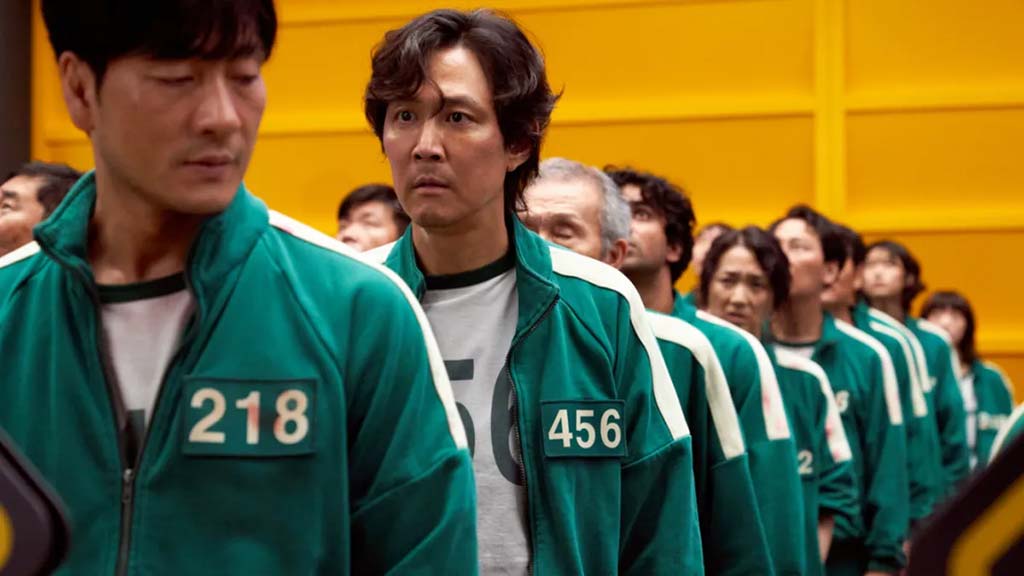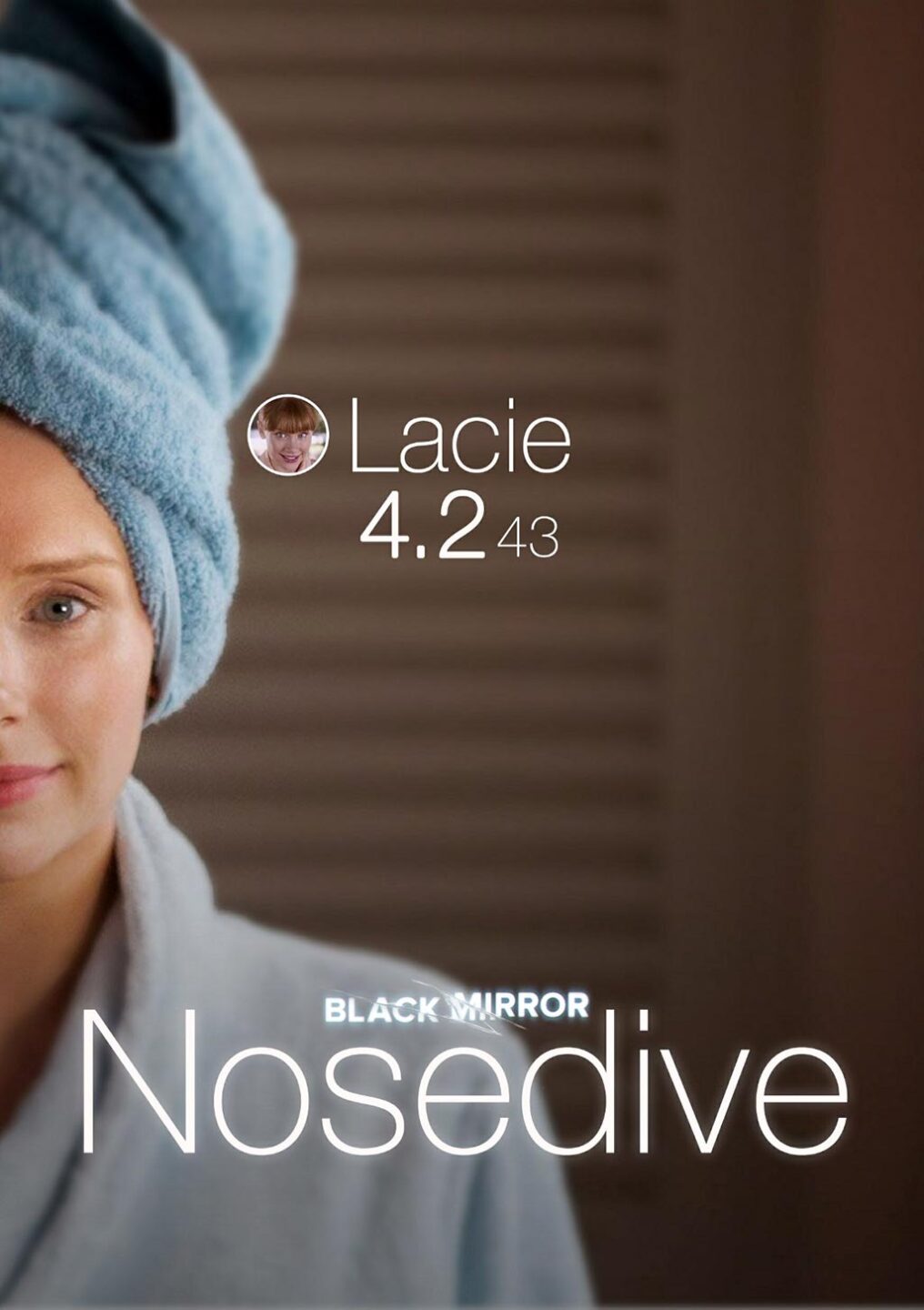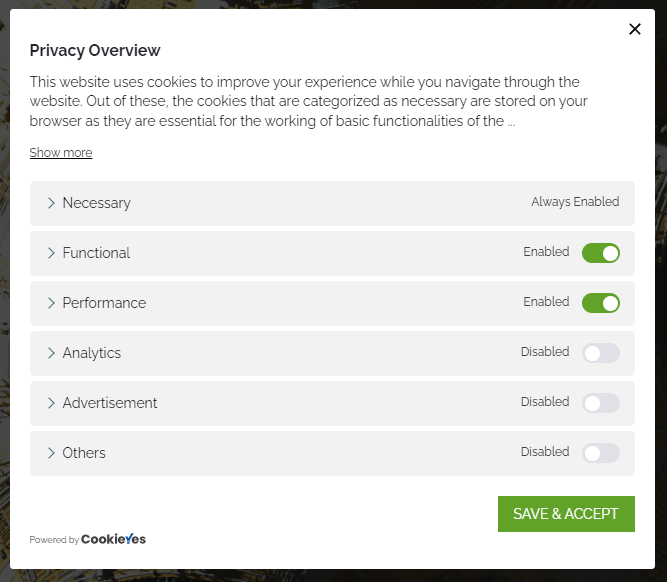
Meta’s Vision for Our Future Sucks More Than Most Realize
I’m going to try and distill this as efficiently as possible. Let’s start with a few important facts.
- Social media platforms are addictive misery machines that allow harmful misinformation to spread unchecked.
- No one has been able to make a better wide scale social media platform, even with massive effort put into content moderation. Mark Zuckerberg has called upon our government to decide how to do it for him, because he’s at a loss for how to do it and would rather focus his energy on profit centers.
- Few governments have been able to keep up with effective regulation on the networks and data brokers who power it.
- Cryptocurrency and NFTs are a drain on natural resources and accelerate climate change. Even the most efficient ways to mine these currencies start as a drain on resources before one is minted. The drain grows with each transaction. This is the core of blockchain design.
Stemming from these facts and experience, here are a few views I hold. Disagreeing with me about these won’t prevent one from seeing the dangers I’ll be discussing.
- Cryptocurrencies, through both legitimate operation and fraud, are tools of extraction further exacerbating the distribution of wealth to a small, generally already-privileged few.
- NFTs attempt to place monetary value on every hypothetical bit of data for the sole purpose of generating passive income for people who add nothing to society beyond owning things. There is no public domain or fair use for NFTs.
- Crypto bros are generally awful human beings.
Now let’s get started with my editorial.
Societies
It’s not impossible to run a healthy social network. We all operate our own small social networks in our bubbles in real life and digital spaces. We have D&D groups, pot luck dinner parties, knitting circles, and book clubs. Many of us find good balances in those groups and they can last many years. There’s no social or technological constraint preventing this until one tries to scale and pull profit from it.
What probably is impossible is creating a massive social network while making massive profits, becoming a billionaire, and having everyone like the figurehead of it all. And the egomaniacs who own these networks expect all of it. It seems like they need to prioritize one of those goals to succeed at any of them, but our current social media landscape will keep sucking until they get through their long awkward adolescence as an industry.
Escapism

Whether it’s fundamentalist Christians preparing for The Rapture or Elon Musk designing a slave plantation company colony on Mars, people who take their escapism too seriously can be dangerous. They live their lives nihilistically on our shared planet as if the consequences of their actions don’t matter. When the consolidated monopolistic power of the largest corporate interests to ever exist are focused on fantasies of escapism, the situation becomes especially dire.
Perhaps some are looking to escape liability for climate change. Moving to Mars could help keep them out of reach from the pitchforks and torches of the citizens they exploit. Maybe there’s a looming catastrophe on its way only they know about.
Or it’s more boring: the latest scheme in a long history of the richest few seeking to escape taxes, regulations, liability, and consequences for their exploitation of the rest of us. The car with its engine running out front.
Our Data
Their escape requires the rest of us — its eventual victims — to power it. It needs our workers to design and build the technology. Ideally they’d like us to do it for far less than the value of those products they plan to take with them when they abandon us. It’s nothing new; workers and consumers have been pressured, propagandized, and otherwise tricked into fueling our own oppression throughout human history. What’s new are the subtle ways these tech giants steal from us daily.
This is where social media comes in. It’s no longer news to most: data is a gold mine — even when it’s from the least powerful among us. Every behavior we allow to be collected and analyzed at scale turns into another lever powerful interests can pull to manipulate us. First this was used to get us to spend our money the way they wanted. Soon it became about getting us to vote the way they wanted.
Imagine the data they could collect if they could strap devices to our heads with cameras pointed directly into our eyes. We won’t need to choose an emoticon to react to a post. They can measure every momentary glance to see what distracts us with a precision greater than what our brains can even comprehend about ourselves. They can find what entices us, brings us joy, disgusts us, makes us angry, and terrifies us faster than we can. Even if we don’t choose to tap a ❤️ or 👍.
It’s the closest we’ve ever been to “thoughtcrime” level surveillance.
They’ll even charge us $1500 for the pleasure.
I get some of the VR/AR gaming and entertainment stuff is fun, but is it worth all the costs?
Who Buys and Sells Our Data
Data brokers haven’t shown much restraint when it comes to saying no to buyers. They can effectively extort all of us at will. With the kind of data obtainable through these headsets, they could:
- Tell marketers and political strategists our deepest desires and fears.
- Including those we’re ashamed of or are working to suppress (addictions we’re treating, for example).
- Sell our employers data about us feeling unmotivated or disengaged at work.
- Add “lie detection” or other real time analytics to conversations we have with anyone with asymmetrical power in the system. (a premium subscription model perhaps)
- Allow authoritarians to find, prevent, or punish descent.
- Out queer kids to their parents/teachers/classmates, and out adults to their employers.
It’s easy to assume these supervillain-style possibilities won’t actually be acted upon, but there’s nothing stopping them from doing it. Is it really so unrealistic to think a software company would sell a Meta-compatible “parental control” suite that alerts parents/teachers/administrators if a child shows signs of queer behavior? Anyone with admin access to these systems (schools, workplaces, internet cafes…) can install these kinds of data collection features. And, like we already see today, the average American has no idea who knows some incredibly intimate details about them.
Without regulation, brokers can use our data to manipulate us into behaviors they want. Perhaps they’ll charge us protection money via “privacy subscription services”. They could use data protection as incentive to keep us watching their ads or logging in to their apps.
For every business using facial recognition, emotional response, and detailed body motion data for fun entertainment and helpful consumer products, there are hundreds who want to use it against us. Some of the horrifying points I’m making in this article are being enthusiastically pitched to investors as sales and marketing opportunities right now.
The Torment Nexus Metaverse
While some tech billionaires plan to escape the consequences of their extraction on Earth by rocket, Mark Zuckerberg fantasizes about escape into a digital world. Sadly, like many uncritical consumers of media lamenting fiction becoming political, Zuckerberg fails to grasp these are cautionary tales.

The point of Neal Stephenson’s Snow Crash — the story that first introduced the Metaverse — is this realm is a terrible place. Corporate interests own every aspect of life between our physical bodies and anyone or anything else, and they continuously attempt to encroach further into the bodies and minds of their users in a dogged pursuit of intellectual property.

Ready Player One plays a more light-hearted and Disney-washed version of this universe where all our favorite branded nostalgia can play together in a video game run by an altruistic loving creator. But even in this practically impossible best case scenario, the real world is syphoned dry. Its resources have been extracted into oblivion. Anyone with enough means to tread water in the middle class or higher spends as much of their time as they can escaping into their digital realm (OASIS) to avoid the — sometimes literally — collapsing living conditions their physical bodies inhabit.
I started to figure out the ugly truth as soon as I began to explore the free OASIS libraries. The facts were right there waiting for me, hidden in old books written by people who weren’t afraid to be honest. Artists and scientists and philosophers and poets, many of them long dead. As I read the words they’d left behind, I finally began to get a grip on the situation. My situation. Our situation. What most people referred to as “the human condition.”
It was not good news.
Ready Player One, Ernest Cline
Those who look forward to these dystopias picture themselves as the protagonists or other powerful characters in a decayed future world. Most of us aren’t those people in today’s world, so there’s absolutely no reason to believe we will be there either. The few of us with power in today’s world aren’t Hiro Protagonist either. They’re Nolan Sorrento, the megalomaniacal tech CEO trying to use the digital world to hold power over everyone else.
Related heads up for Mark Zuckerberg: Fight Club wasn’t about how cool Tyler is and how we should all be like him, Star Wars isn’t about how cool it is to wear all black, wave around a red lightsaber, and have everyone be scared of you, and Ex Machina isn’t about how cool it’d be to create a robot girlfriend.
Because Office Work Isn’t Enough of a Hellscape…
It’s one thing to have this product available to those of us who opt in for gaming, socialization, or other entertainment purposes. It’s a whole other matter if we don’t have a choice.

Meta wants people to log in to Metaverse to work. Anyone who’s worked where they were forced to use subpar *cough*Microsoft*cough* products instead of better tools should understand at least part of why. Employers don’t choose the tools their workers use based on merit; they choose them based on which companies their board of directors are also invested in.
Don’t get me wrong, there are certainly some cool features for work. This is all Meta wants to talk about, and it’s evident in any pro-web3 echo chamber. Like standing desks, “unlimited” PTO, and open office layouts, before long we’ll see these flashy gimmicks don’t provide any actual improvements for productivity or what it’s like to be the worker.
Anyone who works for a company whose board includes people invested in Meta will likely be forced to use the Metaverse at some point. This is what supporters of web3 are referring to when they remark on the inevitability of this nightmare. Workers who share my aversion to having my boss’s shadow over me all day should keep an eye on where and when these shifts occur and plan the future of their careers accordingly.
Surveillance and Micro-Management
Some remote workers today are being required to install eye tracking software on their workstations. There are teams at my company where they’re not allowed to have their cameras turned off in Zoom meetings. These practices disgust me. They’re invasive and ableist, and they betray a toxic management culture.
No boss who wants to be constantly watching what we do over our shoulders is doing anything resembling proper leadership. It is a zero trust environment where managers are micromanagers and everyone is only measured by their sycophantic will to submit to authority.

In Snow Crash, there’s an ex-con antagonist who’s had “poor impulse control” tattooed across his forehead essentially by court order. If we use the Metaverse to go to work, our avatars are easily branded by the admins of any given workspace or the Metaverse platform itself. I have dozens of friends who’ve been placed in “Facebook jail” for ridiculous reasons without due process or recourse. Wouldn’t it be wonderful to be blackballed in our careers in similar circumstances?
Brought to Us By The Worst People in Software
Consider every annoyance we experience on Meta’s apps. The constant notification spam from Instagram about “People You Might Know” we can’t turn off. The Stories and Reels bars just appearing at the top of our screens at some point and can’t be turned off. The regular repeated begging to get access to our contacts, location, and other data. Ads and “recommended content” which may as well be ads, every other post in our feeds.
Imagine it streaming directly into our eyeballs on a device they own. A Meta-owned device won’t act as a goalkeeper between us and Zuckerberg’s data portfolio the way today’s smartphones do. Imagine being expected to work this way every day.
All to support an imaginary world where Earth’s biggest assholes can buy and sell digital real estate and collect passive income for producing nothing real. Forcing more of us into using currencies that extract more from the ecosystem health of our planet to help them escape paying their fair share in taxes every step of the way.
Nosedive
Anyone talking about sci-fi dystopic futures needs to watch pretty much every episode of Black Mirror. I mention episodes of the show in practically half my articles, and this one will focus on Nosedive (Season 3, Episode 1). (spoilers incoming)
Lacie spends most of the story chasing clout in a virtual app people use to rate each other on a five star scale. She desperately craves the approval of the highest-rated people who all treat her like garbage and turn on her the moment she is even the mildest inconvenience to them. Meanwhile, she ignores or even bullies the authentic people in her life.
As with all science fiction, this pursuit takes a turn and Lacie’s misfortune begins to snowball downhill, where one of the many themes of the episode is revealed…
Is it really so bad to miss out?
As Lacie continues her descent into the lowest star ratings, she endures progressively worse abuse by the in-groups using the system. She’s not treated like a human being again until she meets a down-to-earth trucker named Susan.

Susan stopped using the app when her late husband was denied life-saving care because their ratings weren’t high enough.
Based on what we’ve seen at this point, we can presume many of the things Susan misses out on by not being part of the unnamed app’s ecosystem. She wouldn’t be considered for a job or apartment like Lacie’s. Susan likely has a hard time traveling by any means she doesn’t own herself, based on the airport and rental car scenes. She must know her life could end similarly to her husband’s if she ever needs medical care gated by the app’s ratings.
Yet none of those inconveniences or absences seem to make her regret leaving the system. She seems happier and more authentic than any other character in the episode.
Our current stakes in the social media world are obviously less severe. We have much less to lose by leaving the apps today, but considering the negative health effects of social media we may gain even more from it. In my view, we have little incentive to dig ourselves deeper into the hole.
What do we do?
On a high level, we need to act politically to:
- Break up monopolies and prevent the mergers and acquisitions making them bigger. Having choices is the only way for us to exercise our power as consumers.
- Support well-written regulations like those in the EU to start and continuously add to them as we track the real life human consequences of these products.
- Join the EFF (Electronic Frontier Foundation) and pay attention to their lobbying efforts.
We can act in our daily lives too. Like everything else, pick the low hanging fruit and leave the rest. No one can or should attempt to optimize every part of their lives.
Everything in moderation, including moderation.
Oscar Wilde
“Miss Out” on Surveillance Capitalism
- Get rid of Alexa. Turn off Siri. Uninstall Nest smart home systems.
- Vocally oppose workplace surveillance whenever we can.
- Turn off as much data sharing in our privacy settings as possible on any device we use regularly (smart phone, smart watch, computer operating systems), especially if we’re using them passively.
- Stop taking online quizzes where we reveal our birthdates, friends lists, and the last four digits of our social security number. It’s up to each of us to decide what our own data is worth, but it’s certainly worth more than finding out we’re Hufflepuff.
- If and when a social media platform lets us be the customer rather than the product (perhaps with a paid subscription model), consider supporting it. Even better if it’s open source.
- Leave the worst-acting social media platforms when we can.
Related to this, if you have a blog or other place where you share original content that isn’t on a social media platform, let me know and I’ll follow it! I’m trying to use my RSS reader more for my daily “feed” scrolling.
Be Platform Agnostic
Building codependency with Google, Facebook, Adobe, or any other giant tech company is opening ourselves up to being dependent on them.
- Keep an eye out for alternatives and competitors and try them if they look useful. Even if we don’t switch, it’ll help keep us from feeling stuck with one when they inevitably reveal their evil plan. (when we can’t find alternatives, we have to work toward empowering antitrust)
- When adopting new technology, find out if there are ways to export our content. If we’re posting on a blog platform, we need the ability to export our work so we can use it elsewhere. It’s a red flag if we can’t export our playlists, download our photo/video uploads, or save our documents easily.
This is especially important for people who makes decisions about technology their team or company are going to use. We look foolish if we commit our bosses and coworkers to solutions that require us to painstakingly copy our work over to the next one because they don’t offer reasonable migration options.
Value Our Data, Time, and Attention
Don’t give any of it away for nothing.
- Don’t watch un-skippable ads for services we already paid for. It’s a rip-off.
- Pay the $2.99 one-time purchase for the full version of a mobile game we play for hours everyday instead of watching 20 minutes of ads daily for them.
- Don’t play addictive collecting (gacha) games charging for subscriptions or regular purchases to enjoy them. Either play the completely free version with discipline or quit and find an alternative. There are thousands of great indie titles out there. In fact, those titles are probably where these predatory ones stole their best ideas from.
When We Do Give Our Data Out, Know Who’s Getting It
- If a website we use regularly offers a “Do Not Sell My Information” option, take the few minutes to use it. (any site offering it is doing the right thing)
- When canceling a service or not using an account anymore, take the time to request they delete all our data. We can also request a copy of our data if we like, but there’s usually not much we can do with the data dump unless we’re trying to prove something for a court case. All sites collecting personal data are required to allow this, even if they make it difficult to do so in their design.
- Search for our name on occasion and have any site or company we didn’t authorize to use or sell our data delete it. Report them to the authorities if necessary.
- Never accept all cookies when the pop-up appears on every website. Switch off anything not specifically benefiting us directly. It usually just takes one or two extra clicks.
When we first begin doing this, it can feel like a lot of work. Many companies do the best they can to make it feel this way. But it will result in us having less risk of being defrauded, less spam, and our identity will be harder to steal. It will also hit these shady extortive businesses in their wallets the more who have these better data hygiene habits.
But Corry, You Use Some of These Services!
I use Facebook every day. When asked why, I usually talk about how I have so many friends all over the world with whom I have no other means of easily keeping in touch. I’d show an uncharacteristic lack of introspection if I excluded the strong likelihood I’m also addicted to it. The ease with which I can share an idea, a photo, a life update, or an interesting article and then get positive reinforcement in return is something I’ve grown to need. Every time I find a new platform I can get it from anywhere near as conveniently, Meta just buys it.
When I meet people who aren’t on Facebook, my first reaction is jealousy. I long for not being part of it the way people say they wish they could live in the woods and hunt/fish/forage their own food. A romanticized idea of the greener grass on the other side of the fence.
My next reaction is trying to connect with them without being too creepy about my new budding friendship. I have to get their email address, phone number, and other info so I can add them to my contacts list, calendar app, appropriate group chats, and blog newsletter or show them my RSS feed. It’s more work than tapping “Add Friend” but I’m happy to do it.
I hope to one day be able to get everything I need from other places. I want to see what my friends are up to, schedule hangouts together, and quickly share things with everyone I know. As much as I’ve tried to make this site do much of that, it’s too much development work to handle on my own. I hope we get a decentralized social network option where my parents, my friends, and someday my nibblings can join without all the issues our current options have.
Or…

If one is still not quite as alarmed as I am about this whole thing, feel free to sign up for the casting call for the real life Squid Game Netflix is producing. Or we can go visit Jurassic Park when it opens. If we’re going to ignore cautionary tales, we may as well go all in, right?

